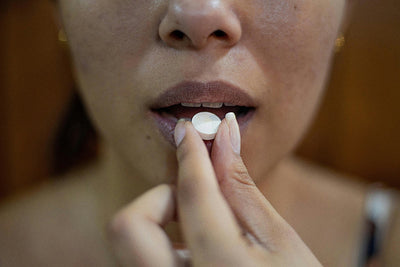The Link Between Breastfeeding and ADHD
The Link Between Breastfeeding and ADHD
By Katie Black
Over the past decade, diagnoses of ADHD in children have risen by around 30%. The US is currently at an all time high with 9.4% of children ages three to 17 diagnosed with ADHD. Let’s look at what ADHD is, why diagnoses are on the rise, and how breastfeeding may help lower the chances of infants developing the disorder later in childhood.
What is ADHD?
ADHD (Attention Deficit Hyperactivity Disorder) has a bunch of symptoms like difficulty focusing, fidgetiness, inattention, distractibility, difficulty controlling impulses, and hyperactivity. Symptoms may start showing up as young as preschool age, but most kids are in middle school or high school when they get a diagnosis.
ADHD is on a spectrum with some people being more affected by the disorder than others. Both genetic and environmental factors are at play when it comes to whether a child will develop ADHD or not. There is no cure, only several options to manage symptoms. ADHD can affect every area of life including school, home life, relationships and careers/jobs down the line.
Why are ADHD diagnoses on the rise?
Diagnoses have risen in both children and adults over the past few years. It’s unclear if the disorder itself is spreading or if more people are just being diagnosed as doctors and mental healthcare workers are more aware of the disorder and better at recognizing its symptoms. This is particularly true for women and girls. Their symptoms often differ from boys (boys are typically more hyperactive while girls are more inattentive) and they were historically underdiagnosed before the definition for ADHD was expanded.
Plus, more preterm and low-birth-weight infants are surviving than they did a decade or two ago thanks to advances in medicine. Being preterm or low-birth-weight can increase chances of developing ADHD so it makes sense we’re seeing more cases.
There’s also concern that using more technology and overcrowded classrooms is affecting the attention spans of children (and adults) and their ability to focus.
What is the link between breastfeeding and ADHD?
A study published in Breastfeeding Medicine found a correlation between shorter amounts of time spent breastfeeding and ADHD. Researchers compared children who were diagnosed with ADHD to two different control groups: a group of non-ADHD siblings of children with ADHD and another group of non-ADHD related children. Parents reported their children’s medical, perinatal, and feeding history.
For the group diagnosed with ADHD, 43% were breastfed at 3 months compared to 69% in the siblings group and 73% in the non-related group. By six months of age, 29% of ADHD children were breastfed compared to 50% in the siblings group and 57% in the non-ADHD group. The researchers found a significant relationship between ADHD and lack of breastfeeding at 3 months of age, the mother’s age when giving birth, being male, and the parents’ marital status.
The study concluded that children with ADHD were less likely to breastfeed at three months and six months of age than children in the two control groups and that breastfeeding may help protect infants from developing ADHD later in childhood.
It’s been shown countless times that breastfeeding provides a myriad of health benefits to both momma and baby. So it’s really not surprising that lowering the chances of developing ADHD might be added to that list.
One of the main reasons women stop breastfeeding earlier than they want to is feeling their milk is not providing all the nutrition their child needs—but a lot of the time their milk is actually fine. At Lactation Lab we’re taking the guesswork out of exactly what’s in your milk so you can breastfeed confidently and with less stress. You can order your own test here. For related reading, find out how your diet helps your baby’s brain grow.
Sources:
https://pubmed.ncbi.nlm.nih.gov/23560473/







Hi Ges,
While it’s true that ADHD has a strong genetic component, studies are showing there is an environmental competent as well. Adult onset ADHD is also currently poorly understood and may have different causes, so we can’t make strong claims on whether it is always something you are born with or not.
‘Breastfeeding may help protect infants from developing ADHD later in childhood.’
ADHD is a permanent genetic condition that you are born with. It is not something that you can first develop in childhood or later in life and not something that you can remove or undo after birth through breastfeeding, medication or any other lifestyle factor.
You may be able to reduce the SYMPTOMS which usually first develop or ‘show’ later in childhood as with autism and other neurodivergence.